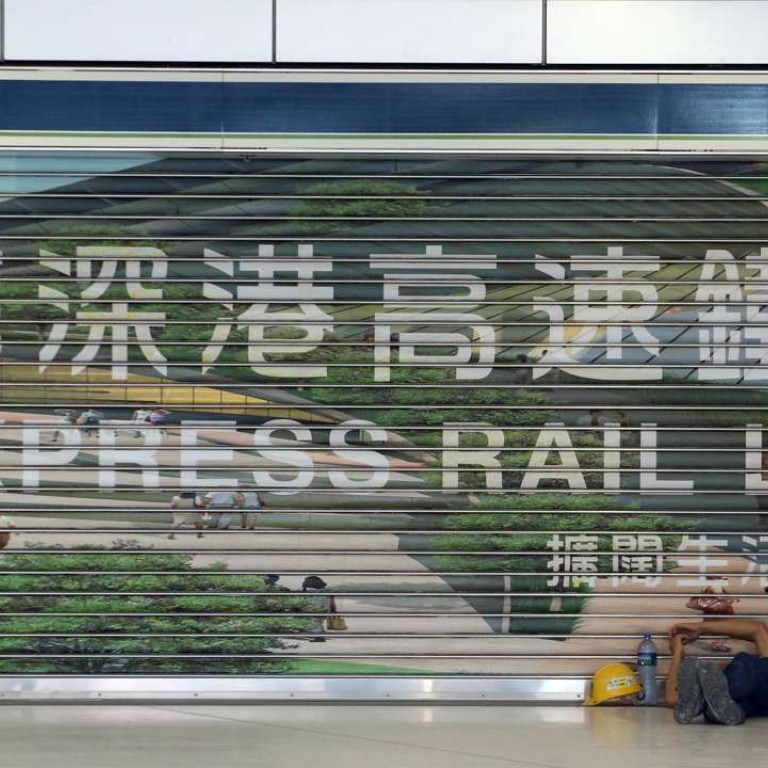
Hong Kong talks with Beijing over co-location of checkpoints for Guangzhou rail link at ‘critical stage’
But city’s government not ready to reveal other information to public, says Undersecretary for Transport and Housing Yau Shing-mu
Negotiations with Beijing over the controversial co-location of checkpoints at the West Kowloon terminus of the HK$84.4 billion express rail link to Guangzhou have reached a critical, final stage, according to Undersecretary for Transport and Housing Yau Shing-mu.
But he said that the Hong Kong government was not ready to disclose other information at this point. “So far we do not have any further updates on the negotiations,” he told the Legislative Council’s subcommittee on matters relating to railways on Friday.
New People’s Party lawmaker Michael Tien Puk-sun, chairman of the subcommittee, believed that the National People’s Congress (NPC) Standing Committee would need to discuss any agreed proposal between Hong Kong and the mainland and authorise the State Council to make relevant arrangements.
“I suspect that the NPC Standing Committee may need to discuss this issue during its bimonthly meeting on December 19, otherwise it will be too late for the government to arrange the enactment of local legislation [so that the] deadline in the third quarter of 2018 [would be met],” he said.
But Yau insisted he had nothing to add, saying that he had no idea of the NPC Standing Committee’s schedule.
The co-location arrangement, which pan-democrats say violates the Basic Law, would mean that mainland officers would be stationed at the West Kowloon terminus and would be enforcing laws in Hong Kong. Legco’s approval is required for this plan because it involves the enactment of local legislation.
Lawmakers have expressed concerns that there would not be enough time for the local community to discuss the plan and arrive at a consensus.
Tien earlier said that, according to his sources, the government was expected to put forward a proposal by the end of December on how to implement the controversial co-location of checkpoints.

